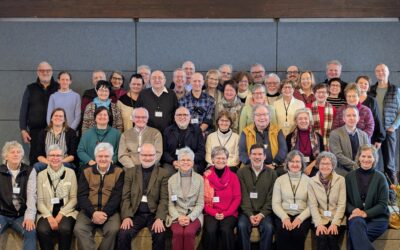While the crisis in the Ukraine, has reached the breaking point, keeping the world holding its breath; and the media spotlights are focused on many other parts of the planet such as Syria or Venezuela, we had the possibility of talking to some of our Focolare friends who are immersed in the tensions that Nigeria is going through, the most populated country of Africa with more than 160 million inhabitants. 
Nigeria is the largest Islamic-Christian co-existence in the world, according to you is this the cause of the serious acts of violence that happen in the Country?
“Unfortunately in these last few years Nigeria has been in the headlines often due to the frequent terrorist attacks and the destruction caused, both by Muslims and by Christians; just as the painful events of the past weeks have shown in the states of Borno and of Adamaza in the northeast of the Country. Seen from the outside, it may seem that what is happening is an expression of a religious conflict, but those living in the Country can testify that this is not the whole truth. The fact is, in a great part of Nigeria the cohabitation is peaceful and full of respect for one another”.
Are there pockets of violence…?
”In some regions, especially in the north, there are continuing tensions that have caused thousands of victims. There are many reasons for this: the lack of economic resources, the wounds inflicted upon the people in the past among the various ethnic groups but, above all the destructive activities of terrorist groups”.
How do you try to react in this situation?
“The members of the Focolare Movement, together with many men and women of good will, try to be builders of peace in our daily life: to recognize in every person we meet above all a brother and sister who must be respected, encouraged and helped. We strive to have this attitude wherever we are; in our families, in our place of work, on the street, at the market or in school; starting with small acts, such as a greeting, or showing interest in what the other has in his heart, etc…”.
In front of dangerous situations, wherein one must protect one’s life or that of the other…?
”We try not to stop in front of the different ethnic or religious factions, so as to be ready to help whoever is in need. We have seen how these actions, small or big, can help to slow down and, at times, to even stop the spiral of violence. Slowly they can promote a new mentality, which is to change the atmosphere of hate and revenge into an attitude of respect and fraternity”.
You have recently opened a new center in Abuja, the capital of Nigeria…
”Yes, exactly one month ago. It was a decision made together with the local Church so as to be close to the community in the north of the Country, which is more exposed to the conflicts. In this way we can support and encourage all those who are living for peace and fraternity, inspite of everything”.




0 Comments